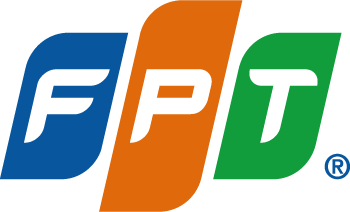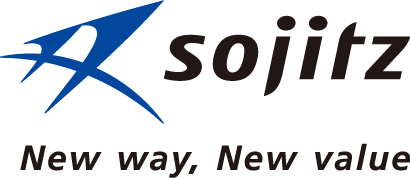

Review

Nissho Electronics Corporation
DX Needs to Start with HR
Focusing on the Needs of Vietnamese Companies
Nissho Electronics is a wholly owned subsidiary of the general trading company Sojitz Corporation. It sells information technology and telecommunications equipment and digital transformation (DX) solutions. In recent years, its local subsidiary Nissho Electronics Vietnam Co., Ltd., which was established in August 2011, has been focusing on DX solutions for Vietnamese businesses. Kazuyuki Tetsumura, General Director of Nissho Electronics Vietnam, gave a presentation on his company’s business in Vietnam.
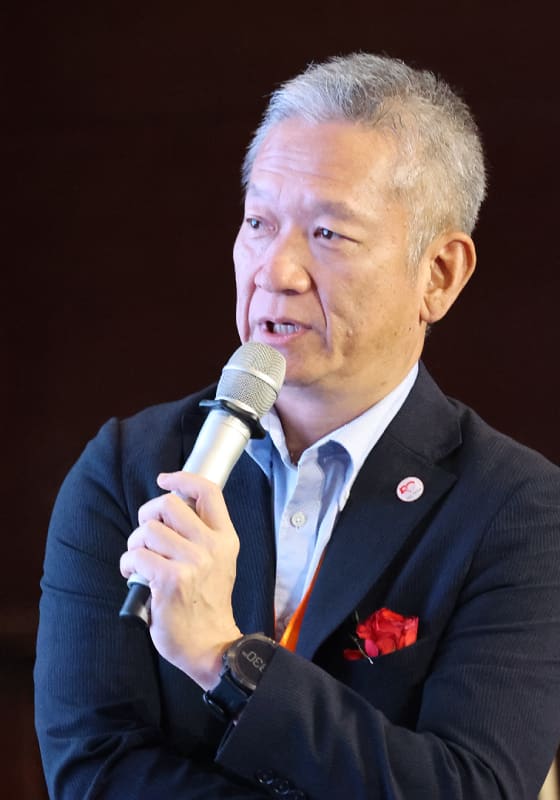
General Director
Nissho Electronics Vietnam Co., Ltd.
Nissho Electronics Vietnam currently has 106 employees, including 90 software engineers. According to Tetsumura, 30% of these engineers can speak Japanese.
The company previously concentrated on software development for Japanese companies, but leveraging its international development know-how, it has recently expanded its business to helping Vietnamese companies with their digital transformation (DX) efforts.
While parent company Nissho Electronics mainly provides solutions in the areas of fintech (financial technology), ERP (Enterprise Resource Planning), AI, and IoT (Internet of Things), Nissho Electronics Vietnam has been deploying these solutions as part of software development projects for international clients.
A single source for delivering HR solutions
Tetsumura explained that through its software development for Japanese companies, Nissho Electronics Vietnam has “accumulated both development know-how and operational know-how in software deployment.”
Making use of all this expertise, the company develops and offers solutions to Vietnamese companies under its RESIME brand. It provides a streamlined set of human resource (HR) solutions, for everything from recruitment to employee benefits. Tetsumura pointed out: “We don’t just offer the same solutions as we do for Japanese companies. We research the requirements of the Vietnamese market, then rework our solutions.”
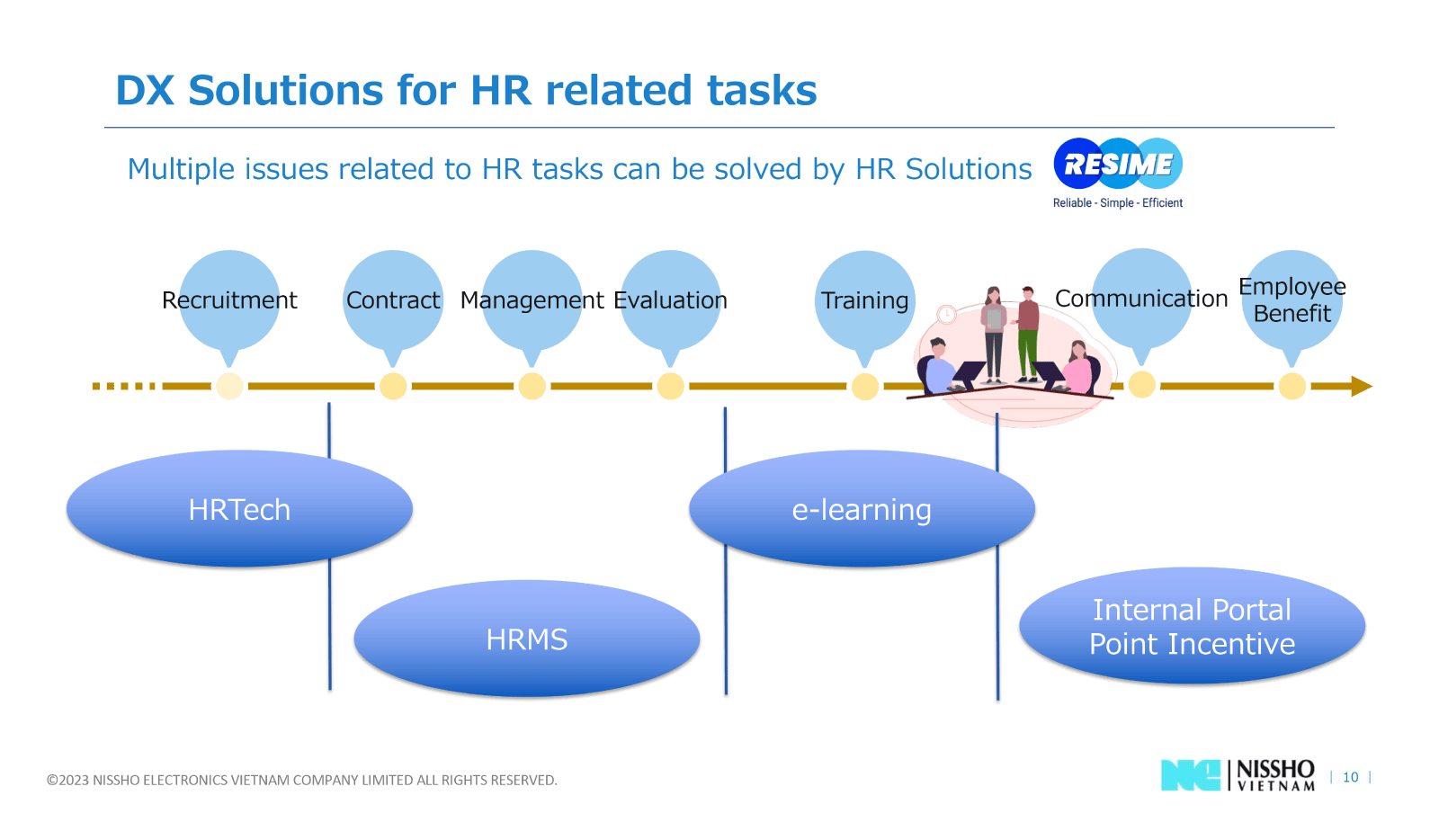
Under the brand name RESIME, the company offers a streamlined set of HR-related solutions, from recruitment to employee benefits
RESIME offers four kinds of solutions. The first of these is an “Automatic Recruitment Platform” for hiring employees. Tetsumura noted that the average employee turnover rate of Vietnamese companies is 20 to 30% per year. He explained: “One company I know of has 10,000 employees, so around 2,000 employees will leave every year, making it necessary to hire 2,000 people to replace them. For every job opening, there are also many applicants, so screening résumés and other documents is a huge burden.”
This company previously assigned 20 people to work on recruitment, entrusting them with reviewing résumés and arranging interviews with the applicants who pass the document screening process. Now, after introducing the Automatic Recruitment Platform with the support of Nissho Electronics Vietnam, résumés and suitability (according to application guidelines) are evaluated by AI. Only the documents of applicants who score above a certain level are reviewed by a manager. The company estimates that this platform has allowed it to trim its recruitment staff by about 80%.
The second kind of solution is a “Human Resource Management System” for managing attendance and payroll. Tetsumura said: “The basic functions of this system are broadly similar to those of similar products offered by other vendors, but there is a function that allows employees to clock in and clock out by just pressing a button on their smartphones. The location of the employee is also captured. The system can also be flexibly linked to other systems, such as prepaid salary services.”
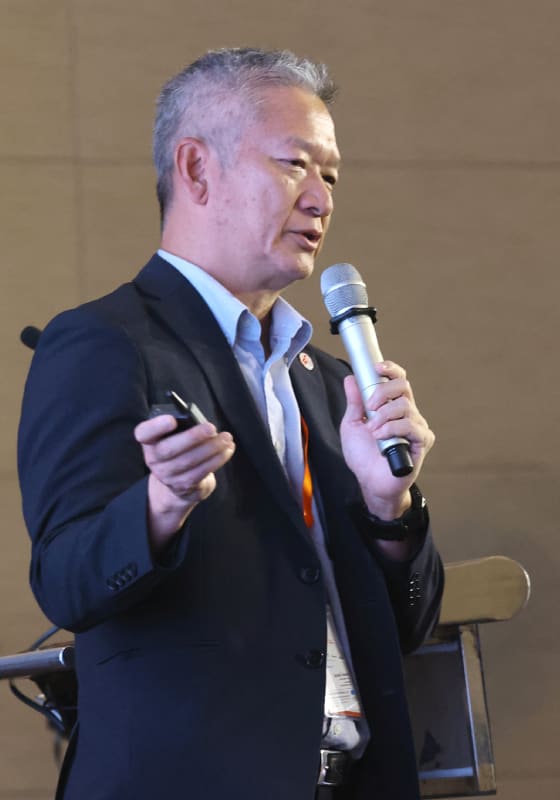
The third kind of solution is a “Learning Management System” for training. This is basically an e-learning service that allows employees to undergo training at their preferred times from any computer or smartphone. Since the system keeps track of who has completed what training courses, it can also be used for performance evaluations. Tetsumura emphasized the cost benefits of this system. “A company that operates two works shifts would need to hire multiple instructors to provide training, which can be very expensive. So, e-learning can cut costs dramatically,” he said.
The fourth kind of solution is the “Internal Portal System,” an internal bulletin board that can be used for employee benefits. Essentially, this system is used to distribute information to employees. “The unique feature of this system is its points incentive function, something that is popular in Japan and the U.S., but still quite rare in Vietnam,” said Tetsumura.
The system allows supervisors to award points to employees who make useful suggestions to the company. “This helps to foster a culture of mutual appreciation,” said Tetsumura.
Accumulated points can be exchanged for electronic coupons. This is made possible by linking with Payoo, a payment service provided by VietUnion (VietUnion Online Services Corporation), a Vietnam-based member of the NTT DATA group of companies.
Ready and willing to support Vietnamese companies
The Vietnamese government is now actively promoting digital transformation (DX). Tetsumura said: “A variety of initiatives are underway. One goal is to reach 100% smartphone penetration by 2025.” Business have made little progress with DX, however. “Companies are not sure where to begin,” he noted.
Elaborating, Tetsumura explained: “Many Vietnamese companies want to start with more difficult things, such as using digital technology for production management. I think they should start with simpler back-office operations.” He added: “It makes sense to start by managing employees more efficiently.”
For example, many companies manage their attendance on paper or using Excel. “This results in numerous human errors and rule violations,” said Tetsumura. “We want to digitalize these kinds of process with RESIME, which is easy to adopt.”
Thus far, RESIME has been offered on a trial basis in Vietnam, but the company is planning a full-scale rollout in the future. Tetsumura enthusiastically concluded, “The wealth of know-how we have built up through 12 years of doing business in Vietnam gives us real confidence. Now, we want to focus on helping companies in Vietnam adapt to the digital revolution.”

